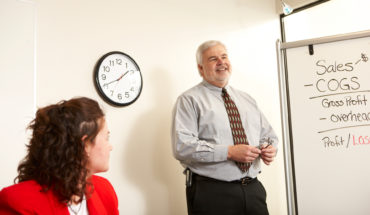When you go for an interview, you anticipate the standard questions. Some questions will be case scenarios – what would you do if…? – and others are the one we all hate. Questions like:
- What are your strengths and weaknesses?
- Where do you think you will be five years from now?
- What accomplishments are you particularly proud of?
- What could you have done better?
- Name an example in which you demonstrated true leadership.
The list is endless. We have prepared for them, yet we still hate them. And in reality, human resource professionals tell us those questions are useless, simply because we now see them coming and prepare for them. The most common answer for ‘what is your biggest weakness?’, for example, is ‘I always work too hard and find it hard to say no’. Around 80% of people give that as an answer, which just demonstrates that the answer simply cannot be true.
The higher you climb in the corporate ladder with your applications, the less likely it will be that you are presented with those questions. Indeed, in positions of leadership, interviewers now look for soft skills. Those are hard to define, and since you never know which soft skills they will be looking for, you also cannot have an answer ready. CEOs are becoming masters at asking difficult questions, often throwing what can only be described as a curve ball. These are important interview techniques, as they enable interviewers to truly get to know what the mentality and mindset of a person is. Today, most CEOs have one particular question they really like to ask.
For Charles Phillips Infor CEO affairs with wine seem to be very important, and this is reflected in his killer interview question. That’s right, wine. For him, it’s not about your resume and past experience, it is all about wine.
The Wine List Test
So how does this test work? According to Phillips, it is far too easy for someone to fake it in order to get a job, particularly when an interview only lasts for around 45 minutes. What Phillips does, therefore, is take an interviewer out for a dinner meal, usually inviting a few other senior executives as well. This, according to Phillips, provides an environment that is unexpected and unstructured, throwing people off guard.
At the start of the meal, Phillips will give the potential candidate the wine list. The way they pick is important for Phillips. Some people genuinely know a lot about wine, others will simply pretend that they do. Others still will go for the second most expensive bottle. Some people genuinely ask for help. Part of Phillips’ test is what they decide to do, and how they explain themselves. But during the meal, Phillips also watches what they do with water. He believes that you can tell a lot from a person in how they treat water, and he uses that to make decision.
At the end of the dinner, Phillips, or another member of the team, ends by asking the person to tell them a joke. This shows sense of humor, but also whether they can deal with uncomfortable situations by thinking quickly. Killer interview, or what?



